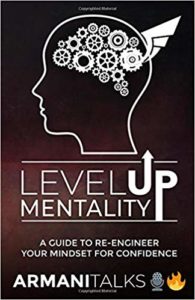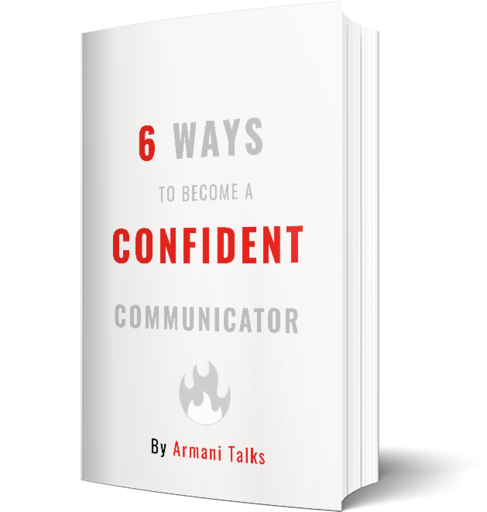11 Common Communication Errors
In a world where forming connections can open up doors, communication errors can do the exact opposite.
Your immediate circle & the acquaintances that you can call up will dictate the level of pull that you have.
Your words wield power to express your ideas, feelings & persuasions skills.
But what if you lack the ability to communicate?
What if you rub people the wrong way by accident?
Then, the exact opposite of opportunities will be presented.
You will be met with a challenging life & a dark feeling of emptiness from within.
Isn’t it sad?
Communication is so important & yet we are rarely taught how to properly execute this subject in school?
Rather, we are taught subjects that we rarely utilize in the real world.
So I can empathize with people who make simple communication errors.
They were never taught this skill set.
Instead, they were told to just figure it out.

But when you are told to just figure something out, you may get close.
But you may also have a lot of quirks that you are completely UNAWARE of.
This post will bring awareness to those quirks.
Awareness is the key to any significant change.
Can’t fix something if you don’t know what to fix homie.
So let’s make you aware so you don’t fall into making the following communication errors!
1. Interrupting
People interrupt for different reasons.
A few reasons include:
- They were raised by interrupters.
- They want to contribute before the conversation moves on to the next point.
- This group wants the conversation to be about them.
- They do it by accident.
Whether you do it purposefully or accidentally, it doesn’t matter.
You are tarnishing your likability in the process.
Humans are flawed creatures. We rarely follow a set framework to the tee, I get it.
Therefore, minor interruptions are bound to happen in a dialogue.
But when interruptions become repetitive, now you are displaying a behavior, not a mistake.
Your ego makes you feel powerful when you get the spotlight back.
But your ego has the tendency to lie to you & paint an illusion of what is reality.
Consciously make yourself aware EVERY TIME you interrupt.
Making yourself aware signals to your subconscious mind that this is an error on your end.
And your subconscious mind will try to fix this behavior for future interactions.
2. Lecturing & Giving Unwanted Advice
You’d be surprised by how many people do this.
You may be guilty of this yourself.
Picture someone coming up to you sharing an experience that you have already gone thru.
Automatically, you find quirks in their execution & you stop listening.
Suddenly, you put on your authority cap & begin lecturing away.
Telling them what they should do, how they should do it, and taking the spotlight away.
But they become annoyed because they were looking for someone to simply share their experience with.
Not someone to take them to school.
Communication errors like this happen when you make a mistake with a good heart.
You genuinely want your friend to not make the same mistakes as you.
But it doesn’t matter how good your heart is.
If you keep doing it, you will spark resentment & they will simply tune out your words.
Just focus on asking strategic questions to guide them to the correct path.
Don’t tell them what to think. Help them learn how to think.
3. Strong Eye Contact to Weak Eye Contact
By far one of the most annoying body language quirks you can make are with the eyes.
Your eye contact indicates your level of presence in the interaction.
Even though other people can’t read your mind, they most certainly can observe your eyes.

Strong eye contact to weak eye contact usually indicates to the other person that you stopped paying attention.
And even if you are paying attention, you come off across as dozing off.
A lot of social interactions come down to perception.
So if you come off as an inconsiderate clown, you will soon be treated as such.
4. Spotlight Jacking
Your friend has the floor.
They are sharing a story & it’s about to get good.
Then out of nowhere, they make a point that you can relate to!
So what do you do?
You butt in & relate to the point.
You contribute your own version of that point.
As you are wrapping up, you think of a new point.
Instead of giving your friend the floor back, you begin to creatively weave into this new point.
You have stolen the spotlight.
Very socially unintelligent on your end, my friend.
Communication errors like this spark an ego.
‘Is it ever okay to relate to someone’s story?’
Depends on the context.
You can analyze from their tonality if they are working up to a big point.
If that’s the case, just hold off & let them continue.
But if they are making a minor point, then it is fine.
Just be SUCCINCT & and give the spotlight back asap.
If you are succinct with your contribution, then it will actually build likability.
Shows that you were paying attention.
5. Making them do all the work
Did you ever talk to someone who made 0 effort to contribute?
All they did was wait to be asked questions?
Soon, it went from sounding like a conversation to an interview.
This indicates disinterest.
You may have given someone that treatment before.
Just responding back to questions without looking to give your piece as well.
There may be times when someone you don’t want to be speaking with is speaking to you.
But in situations like this, find creative ways to exit the social interaction.
Don’t waste your & their time.
I see a lot of shy people make this mistake.
They aren’t necessarily disinterested, they are just unaware that they come off that way.
I don’t care how shy you are.
If you are interested in the conversation, find ways to ask questions back.
Otherwise, you plummet your likability.

6 . Abruptly switching points
Your friend just spent the last 5 minutes telling you a story about his recent trip to the Bahamas.
Your response: ‘So how is your dog doing?’
Tsk tsk.
Even if you were paying attention to his story about the Bahamas, you will perceived as dozing off.
Your question isn’t bad.
Your question is simply IRRELEVANT to the context of the conversation.
Abruptly switching points makes them think what they were saying wasn’t interesting for you or that you weren’t listening.
Stick to the subject of the conversation.
Transition smoothly when the topic has run its course.
7. Opening with a Criticism
I’m a firm believer in that criticism is a vehicle for growth.
Constructive criticism is designed in a way where you can grow in facets that you were previously unaware of.
I consider myself as someone who can handle criticism.
You may consider yourself as someone who can handle criticism.
But guess what?
That doesn’t mean the person who you are speaking to can handle criticism as well.
Assume other people to be sensitive until they prove otherwise.
When you have this mentality, you are able to execute with more tact.
Opening with a criticism sparks their ego & builds resentment.
Rather, sandwich in the criticism.
- Say what they did right. Disarms ego.
- Deliver the criticism succinctly with a smile & friendly tone.
- Wrap up again with what they did right. Your criticism will bypass the ego.
Operate with this 3 step framework when criticizing.
8. Asking personal questions too soon
Personal questions can be a great vehicle to strengthen a social bond.
It is the missing puzzle piece to turn an acquaintance into a friend.
But asking personal questions too soon won’t even turn you into an acquaintance.
It will ensure that you stay on a stranger level.
If you hop in an Uber & the driver begins to ask you about the first time that you lost your virginity, then you will view them as a creepy weirdo.
Rather, work your way UP to personal questions.
Build some foundations with small talk.
Once you have established some rapport, now you can delve into the personal side.
But understand that personal questions depend on the person that you are speaking with.
Some people will open up their personal side in the first meeting.
Some may not open up their personal side until year 5.
Who knows.
Just analyze the context of the situation & take your next steps.
9. Being negative
Holy hell, this is an epidemic nowadays!
So many people just default to a negative conversation without even being aware.
Whining, talking about scandals, saying why life is difficult etc.
They are unknowingly stacking up communication errors left & right!
Awful way to leave a good impression on someone else.
A human should leave the conversation feeling empowered after talking to you.
Not in a dire need for a Red Bull.
Talking about negative topics is fine in future social interactions.
The world is not always rainbows & butterflies.
But be very aware.
Make sure your negative topics only happen every now and then.
Not something that you are known for.
Negative people are despised in the social world.
But since so many people are negative, this is your OPPORTUNITY.
You can be the social node who sparkles like a diamond in the rough.

Maintain your enthusiasm and watch people gravitate towards you.
10. Low energy
Mumbling, monotone, dragging your feet…
All low energy moves.
Low energy moves are displayed by low social valued humans.
AVOID LOW ENERGY.
Enunciate, use vocal variety & walk with some damn purpose.
Also, analyze why you are so low energy.
Your mind, body, or both are the problem.
Mind, because you consume too much negative content.
Body, because you eat like shit all the time.
Find your root cause & fix it.
Humans are creatures of energy.
So when you lack energy, every social interaction will feel like you are pushing a car up the mountain.
11. Being off in La-la land
I saved this for last because it is by far the most important.
Most of having a successful conversation is just about being present.
By being present, you are able to move with tact.
But when you are off in la-la land, planning your next points, thinking about your problems, then you won’t have successful communication.
You will continue to make communication error after communication error & be completely unaware of it.
Be present by making yourself aware anytime that you have drifted off.
Then, bring yourself to the present.
Keep doing this & soon, paying attention will be an autopilot act.

Melt your Communication Errors
Hopefully, now you have much more perspective on your social presence!
Which errors are you making?
Being able to have the humility to admit when you are making a social mistake is huge.
Plenty of people can’t even do that.
But showing the fortitude to do something about it is even better!
Don’t sit on your ass and let your social intelligence suffer.
Instead, work actively to melt these quirks away.
Life is a game of words, thoughts & communication principles.
So let’s make sure we are not being misunderstood by accident.
For more practical communication insights, subscribe to my free daily newsletter.






